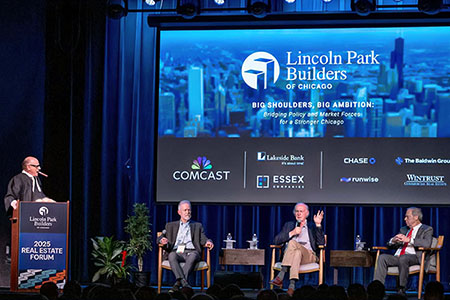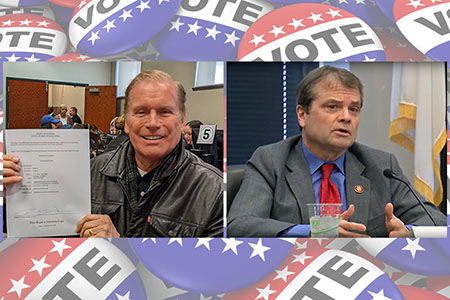(Above) Riverview Condominiums and River Esplanade from Lower Lake Shore Drive Bridge. Mar. 27, 2017 – Requiring unit owners to have “proper purpose” for seeing records of their condominium association may have been needed to protect privacy but, says a supporter of a bill in the Illinois House of Representatives, it has evolved and now “individuals who own the information cannot obtain it.” Introduced on February 8 by 17th District Representative Laura Fine, HB2627 was among ten condo-related bills discussed last Thursday at a hearing in Springfield. The bill would delete language from the Illinois Condominium Property Act that puts the burden of proof on the unit owner to establish that his or her records request is based on a proper purpose. Of nine categories of documents kept by a condo association, five are freely available to unit owners but four categories, including such documents as contracts, leases, and the names and addresses of unit owners, require a proper purpose for seeing. Chicago lawyer Jacob Meister, whose clients include 35 condo associations, says the requirement is a source of conflict and litigation.
Meister told of unit owners who needed contact information to raise support for overturning a board decision. They had 14 days to petition the board to hold a special meeting but since the condo association was allowed 30 days to decide if the request was proper, the petition arrived too late. Instead of 30 business days, Meister proposes a ten-day limit that could be extended to 30 days if the condo association has a good reason. “Sunlight is the best disinfectant. It’s the way that we in a democratic society share information and work through problems. In an association, which is a community, members need to be empowered, they need to know what is going on. And unfortunately, the statue as it currently reads puts the burden of proof on the property owner to show a proper purpose.” Julie Cramer, president of a condo association in Downers Grove, about 25 miles southwest of the Loop, says the “proper purpose” requirement may have initially been needed to guard against commercial use of unit owner contact information but it is now abused. “The provision has become a useful stall tactic for boards and management companies which fight transparency,” says Cramer. “Requests are routinely denied based on lack of proper purpose.” But “proper purpose” does serve a purpose, says Kristofer Kasten, a unit owner, condo board member, and lawyer with Michael C. Kim & Associates of Chicago. He told lawmakers the requirement protects unit owner information.
Kasten would like to see the requirement kept for documents that contain personal information such as names and addresses of unit owners. “Unit owners don’t expect their personal information to just be distributed willy-nilly for whatever purpose whatsoever and that’s why the ‘proper purpose’ is useful.” |















